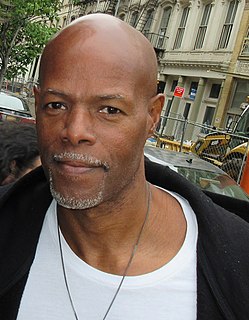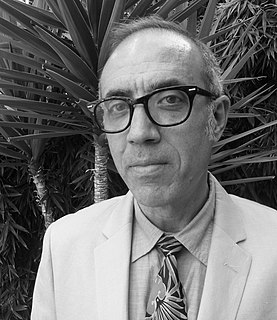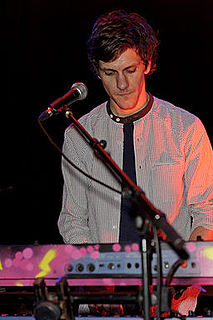A Quote by Paul Feig
I'm the biggest proponent of test screenings now. There's two ways to face test screenings. For dramas, I don't know if I would rely on them as much, although I still think you need them, because you're making a movie for an audience at the end of the day. But with comedy... You could go through a script or anything I ever worked on, where you go, "This is hilarious," and you put it in front of people and you get nothing. And then the other side of it, is something you're like, "I think this is really stupid," and it gets a giant laugh.
Quote Topics
Although
Anything
Audience
Because
Biggest
Comedy
Could
Day
Dramas
End
End Of The Day
Ever
Face
Front
Get
Gets
Giant
Go
Hilarious
Know
Laugh
Like
Making
Movie
Much
Need
Nothing
Now
Other
People
Put
Really
Really Stupid
Rely
Script
Side
Something
Still
Stupid
Test
The End Of The Day
Them
Then
Think
Through
Two
Two Ways
Ways
Worked
Would
Related Quotes
I've seen my own films close to a thousand times in one form or another. When you edit them. When you shoot them. Then you run them over and over again for sound and music. Then you'd go to premiere screenings, and have to do promotional screenings in other cities. I can't watch any of my old films.
Rain Man certainly didn't test really well. If you look at it carefully, you have a disease autism they didn't understand back then, they didn't know in the test audience whether it's okay to laugh or not laugh, because it's a film that's done in a way where, "Well, maybe I'm not supposed to laugh." At the end of the film, Dustin Hoffman gets on the train and doesn't even acknowledge his brother. Not even a glance, nothing. That's why the studio said, "Can't you just have him look at Tom Cruise at the end of the film?"
I do get stressed at times, but I love what I do as an actor. This is the part that I don't like. I don't actually like talking about - I wish I could just go and get on with my job, because I love getting a script, breaking it down, working with other people, bonding with other people, fighting with other people, and out of those arguments, creating something that nobody expected and seeing it all come together. Telling a story, having an impact on people's lives, moving them and making them laugh.
I think for most people, the audience probably couldn't tell the difference, but I know they [shots of visual effects] can be better. And the people working know they can be more precise. I'm still doing another round of sound mixing and color timing, pretty technical stuff. I think the movie [Life of Pi] is really presentable, nothing was left out that would take you out of the movie. I just need to perfect the job and I still have two weeks to go [to deliver final cut to Fox].
I didn’t do anything wrong. All I know is I saw two people struggling to get inside these walls and they couldn’t make it. To ignore that because of some stupid rule seemed selfish, cowardly, and…well, stupid. If you want to throw me in jail for trying to save someone’s life, then go ahead. Next time I promise I’ll point at them and laugh, then go eat some of Frypan’s dinner.






































